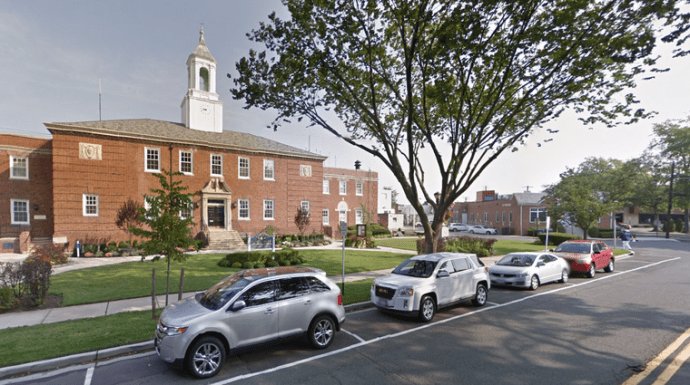The Village of Floral Park may pierce the state’s cap on property tax hikes for the second straight year, with trustees this time citing big increases in health insurance costs.
The village’s proposed $28.4 million budget for the 2017-18 fiscal year would increase revenue from property taxes about 2.9 percent, or about $681,000, more than twice this year’s 1.15-percent limit, officials said Wednesday.
Health insurance rates for the New York State Health Insurance Program, through which the village insures its 127 full-time employees, are set to rise about 12 percent, village Administrator Gerry Bambrick said.
That alone would raise the property tax levy by 2.1 percent, already beyond the tax cap’s limit, Bambrick said.
“There are a few identifiable and specific reasons the proposed budget exceeds the 1.15-percent tax cap” Bambrick said. “The largest and most obvious is the increase in health insurance costs” for the village.
The village Board of Trustees reserved decision Wednesday on the budget and a law that would allow it to override the tax cap.
The budget would increase total spending by about $866,000, or 3.1 percent. The 2016-17 budget also pierced last year’s cap, increasing the tax levy 0.61 percent.
This year’s insurance hike continues an upward trend, Bambrick said — the village’s rates rose 60 percent from 2008 to 2016.
The rising costs of the state’s insurance program reflect a national trend. Average annual premiums for employer-sponsored family health plans rose 58 percent from 2006 to 2016, according to a 2016 report by the Kaiser Family Foundation, a health policy nonprofit.
Other rising costs in Floral Park this year include maintenance for the village’s aging vehicle fleet and debt payments toward its road repair program, officials said.
The village started using bond anticipation notes, a form of short-term borrowing, in 2014 to finance much-needed road repairs, Bambrick said.
The village also plans to transfer about $70,000 more to from the general fund to support operations for the village swimming pool.
While revenue from membership fees increased more than $200,000 from 2015 to 2016, the pool still isn’t making enough to cover all the payments toward the bond that paid for its $6.5 million renovation in 2015, Bambrick said.
Floral Park officials have said the tax cap makes it difficult for local governments to manage rising costs while addressing community needs.
“Outstanding issues remain for the State of New York to resolve” when it comes to setting the tax cap, Mayor Dominick Longobardi said.
Mike Kroeber, a village resident, questioned trustees’ decision to give Police Commissioner Stephen G. McAllister’s a $55,000 raise, making his salary $245,000.
The raise came after McAllister, a retired NYPD inspector, was denied a state waiver that had allowed him to collect his pension in addition to his village salary.
“How out of touch can a police commissioner possibly be with the people who he’s actually serving?” Kroeber said.
Longobardi and Bambrick said it cost the village less to give McAllister a raise than to hire a new police commissioner at a $195,000 salary and pay into his or her pension.
Total spending for police salaries in the village budget is set to decrease about 0.8 percent in the coming year.

